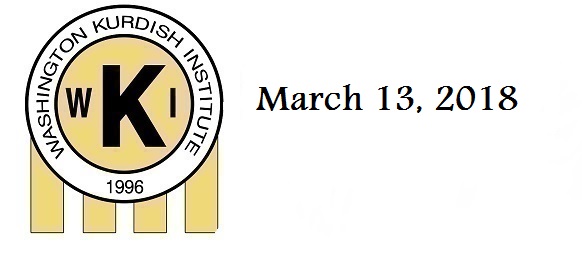999
Iran
- A Peshmerga commander from the Iranian Democratic Party of Kurdistan (KPDI) was assassinated in a village in Ranyia district near the border between Iran and the Kurdistan region of Iraq. According to local police, Qadir Qadiri was shot 21 times by an AK-47. His body was found near a cemetery. Hundreds of people from the Iranian Kurdish opposition attended his funeral. The KDPI officially accused the Iranian regime of assassinating Qadiri. Qadiri was the second KDPI official to be killed inside the Kurdistan region of Iraq within the last two weeks.
- A Kolbar (a Kurdish border porter) was killed and four others were wounded by mines near the border village of Piranshahr. The Kolbars were ambushed and came under fire from Iranian border guards, causing the porters to flee and fall into the minefield. In recent months, the Iranian government has strongly cracked down on the Kolbars. Thousands of Kurds take up work as Kolbars because of the high unemployment and rampant poverty in the Kurdish areas of Iran.
- On March 12, thousands of Iranian Kurds took to the streets to protest Turkey’s invasion of Afrin. Protesters chanted slogans against Turkey’s President Recep Tayyip Erdogan in front of the Turkish Embassy in Iran. In the western Kurdish cities of Iran (Bokan, Kamyaran, Saqez), residents reported a high security presence in response to their protests against Turkey’s invasion of Afrin.
Iraq
- A delegation of U.S. officials arrived in Erbil on March 12 and met with the Deputy Prime MInister of the Kurdistan Region of Iraq Qubad Talabani. The U.S. delegation included the U.S. Ambassador to Iraq Douglas Silliman and John Lister, a U.S. State Department Official. In a press conference, Silliman announced that the U.S. program for Iraq Governance and Performance Accountability (IGPA) will include the Kurdistan region and will help the Kurdistan Regional Government (KRG) to “better manage its money.” The IGPA budget is $160 million and will be implemented through the United States Agency for International Development (USAID). Among the 2018 Iraq budget’s critics has been the International Monetary Fund (IMF). The IMF criticized the budget for its minimized share for the KRG. An IMF official was quoted in the Iraq Oil Report saying that the budget “is not enough to maintain macroeconomic stability in Kurdistan.” Meanwhile a delegation from the Iraqi central government, headed by Ali Mohsen al Alaq (the governor of the Central Bank of Iraq), visited Erbil and Sulaymaniyah to review the agreement between the KRG and Baghdad to release employee salaries in Kurdistan and restart international flights from the Kurdistan region. On March 13, the Iraq’s Prime Minister announced the formation of “Directorate for Protection” for Sulaymaniyah and Erbil airports to allow the federal government control the operations and the security of the airports.
- As the security situation continues to deteriorate in Kirkuk, a family of five was killed by ISIS terrorists. The ISIS forces set up a fake checkpoint south of Kirkuk near Tuzkhomatu town and the family of five was killed while passing through. Meanwhile, in Hawija district, ISIS terrorists carried out attacks against the pro-Iranian militias in charge of local security. While the militias exhibit control over villages by Zab and Abbasi sub-districts during the day, ISIS militants appear during the night to exert control over the territory.
Syria
- After seven weeks of airstrikes and bombardment on the Kurdish region of Afrin, the Turkish military and extremist groups advanced to within two miles away from the city of Afrin. Since January 20, 230 civilians have been killed and 668 wounded, in addition to the death of tens of U.S.-backed forces from the People’s Defense Units (YPG). In the past week,Turkish-backed militia groups executed Kurdish civilians after taking control of the villages near Jandirss district. Clashes continue in the suburbs of Afrin, while Kurdish officials and parties have called on the international community to intervene and stop the Turkish occupation. On Monday, the United Nations Security Council held another meeting about Syria. In his briefing, the U.N. Secretary General Antonio Guterres said “violence continues in eastern Ghouta and beyond – including in Afrin.” Demonstrations in support of Afrin against Turkey spread across Europe. In England, the police shut down a train station for a while in London and Manchester as angry protestors climbed onto the tracks to protest the Afrin invasion. The former head of the Democratic Union Party (PYD), iconic Kurdish leader Salih Muslim called on the Kurdish diaspora to respect the rule of law. Muslim said that “our struggle is democratic and for democracy, we should respect democratic rules in countries hosting our people.” France’s former President Francois Hollande has called for a No-Fly Zone in Syria to protect Ghouta and Afrin. The YPG have withdrawn 1,700 fighters from the front lines against ISIS east of Syria to protect Afrin and fight against the extremist groups supported by Turkey amid the silence of the U.S. government on Turkey’s invasion.
Turkey
- Turkey’s parliament voted against a motion presented by the Pro-Kurdish Peoples’ Democratic Party (HDP) to investigate the civilian deaths in Afrin committed by the Turkish military. Arguments took place between HDP lawmakers and the Speaker as the HDP lawmakers were about to discuss the motion and were interrupted by the Speaker. On Wednesday, Turkish lawmakers from the ruling party of Justice and Development (AKP) physically attacked HDP lawmakers inside the parliament after one HDP lawmaker talked about Turkish plans to change the demography of Afrin. Two HDP lawmakers were injured in the attack. Meanwhile, the Turkish government is criminally charging lawmakers for making social media posts critical of Turkey’s invasion of Afrin, Syria.

